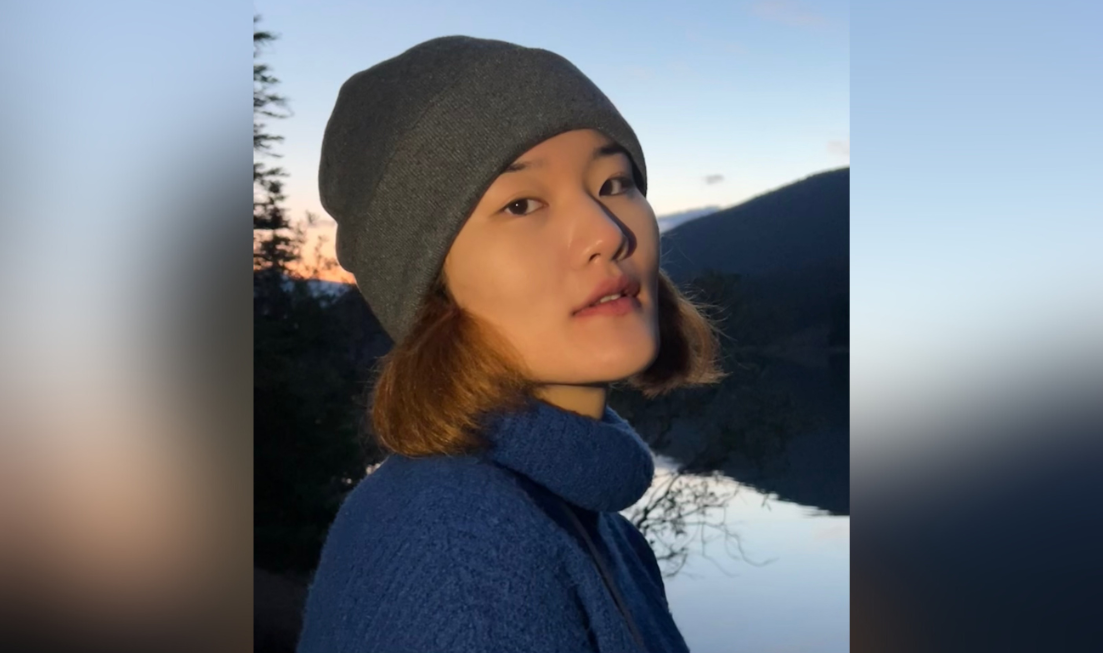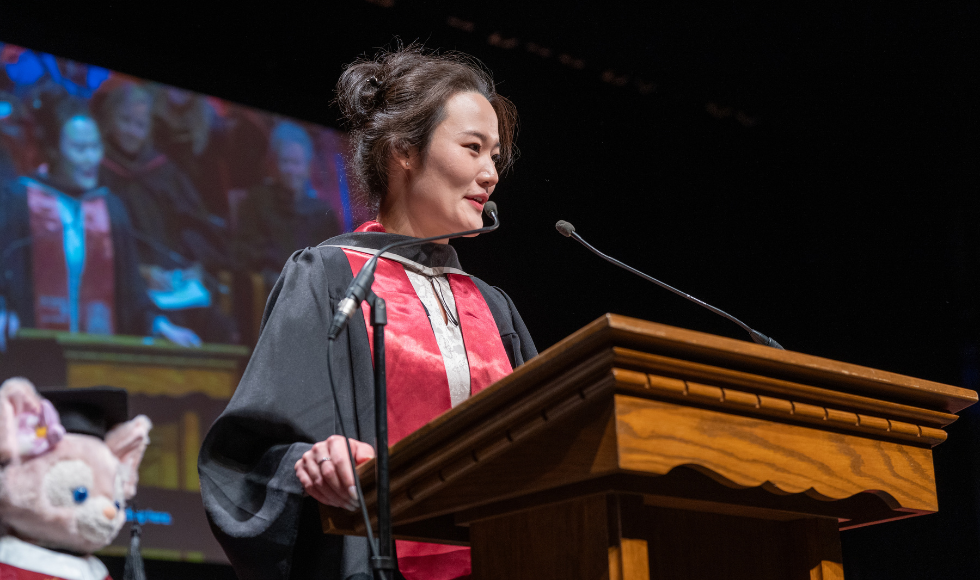Meet Engineering Valedictorian Xiru Wang

From the exuberance of Welcome Week to learning to adapt as an international student, Xiru Wang’s six years at McMaster were never dull. Wang graduates with a Master of Engineering degree in Systems and Technology on Nov. 21.
Xiru Wang graduates Nov. 21 with a Master of Engineering degree in Systems and Technology. This is her second McMaster degree; she completing a B.Tech degree here in 2022.
“McMaster has shaped me in profound ways, and I’m eager to carry this pride forward into impactful research,” she says.
“At McMaster, I discovered a passion for Brain-Computer Interface (BCI) research, particularly in analyzing EEG biomarkers to support patients suffering from chronic neck pain. This research has a meaningful goal: to allocate health-care resources more efficiently by providing accurate treatments tailored to patient needs.
“For the first time, I’ve witnessed the warmth that technology and innovation can bring, and I am excited to embrace the world with this spirit of compassion and care.”
Wang’s journey hasn’t been without challenges, but she has with each experience, she says.
“As an international student, I encountered culture shocks and language barriers, which pushed me to adapt in unexpected ways,” Wang says.
“Today, as vice-president of the W. Booth School of Engineering Practice and Technology Society, I’m dedicated to helping other students navigate the same career uncertainties I once faced. My hope is that together, we can push the boundaries of technology.
“This mission is a driving force in my life, and I look forward to continuing this journey alongside my peers.”

What brought you to McMaster?
I came to McMaster because of my love for the challenges in math, physics, and chemistry that I experienced in high school, and I knew that McMaster’s Faculty of Engineering was among the best.
Visiting McMaster during the Fall Preview when I was younger really solidified my ambition to study here. The energy and excellence of the programs left a lasting impression on me, and I became determined to make McMaster and its engineering department my academic home.
What’s one of your favourite memories from your time here?
I’ve spent six memorable years at Mac, filled with experiences that shaped who I am. One standout memory is the flash of redsuits during Welcome Week, which gave me a strong sense of belonging. That sense of security was invaluable as I began my studies here.
Another defining experience was my involvement in research on EEG biomarkers of chronic neck pain, aimed at predicting treatment effectiveness. It was my first experience with patient-centred research, where we carefully tailored the experiment to meet patients’ needs. This experience was not only a stepping stone for my future in scientific research, but it also brought a warmth and fulfilment to the process, making it both meaningful and enjoyable.
Tell us about a mentor or someone who made a difference for you in your time at Mac.
Many people have been pivotal in my journey at McMaster, and I’m deeply grateful to each of them:
- The W. Booth School of Engineering Practice and Technology and the Faculty of Engineering have profoundly shaped my growth.
- Becoming valedictorian wouldn’t have been possible without the recommendation of Hoda Kamel, whose constant encouragement helped build my confidence and social skills.
- I’m especially thankful to Dr. Zhen Gao, who introduced me to BCI research and ignited my passion for the field.
- Dr. Kostas has also been a supportive presence, always there when I needed guidance. I still remember the time he made an error in his solution and openly apologized; it was a moment that showed his brilliance and humility, and it made a lasting impression on me.
Meeting these mentors has been a true turning point in my career.
Now that you’re graduating, any words of wisdom for students?
The challenges you’re facing now won’t hold you back forever. I’ve been through difficult times myself, especially when navigating a tough co-op search during the COVID period, and I know how discouraging it can feel. The post-COVID job market isn’t easy, and I see many students worrying about it.
But if there’s one thing I’ve learned, it’s that resilience pays off. Keep building your skills and knowledge in the field you’re passionate about, and trust that your McMaster education will be a strong foundation for a successful career.
What’s next for you, or what do you see yourself doing in the future?
With a strong drive to push the boundaries of technology, I plan to continue my journey in a Ph.D. program, focusing on the intersection of neuroscience and artificial intelligence, or potentially biomedical engineering and AI. I’m excited by how advancements in understanding the human mind could inspire breakthroughs in AI, and vice versa.
My hope is to contribute meaningfully to medical science, whether by enhancing treatment effectiveness, as I explored in my EEG research, or by gaining new insights that change how we view both humanity and the world.

